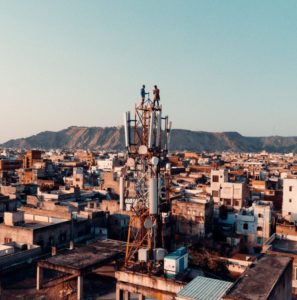A number of recent developments showcase the continuing and rapid adoption of biometric tech in India, where identity technologies are increasingly being integrated to streamline processes and enhance security. These initiatives highlight the growing reliance on biometric systems to address issues ranging from drug dispensation and examination integrity to immigration efficiency and identity verification for national registries.

Punjab De-addiction Centres Introduce Biometric Attendance for OOAT Programs
The Punjab Health Department is set to implement biometric attendance systems in Outpatient Opioid Assisted Treatment (OOAT) centers and private de-addiction facilities. Through this initiative, approximately 1,100 biometric devices and high-definition web cameras will be deployed across 529 centers to ensure that the substitute medicine buprenorphine is only administered to registered patients. This is in an effort to curb the pilferage of medications and enhance the accuracy of patient records. The new system requires patients to mark attendance twice—at registration and at the point of medicine dispensation—integrating with a newly developed portal to streamline operations and prevent misuse.
UPSC Overhauls Examination Security with Biometric and AI Technologies
In an effort to combat cheating and impersonation during exams, the Union Public Service Commission (UPSC) plans to introduce several advanced technologies. These include Aadhaar-based fingerprint authentication, facial recognition, QR code scanning of e-admit cards, and AI-based live CCTV surveillance. This is part of a broader strategy to maintain the integrity of the examinations, which have been marred by recent controversies. The deployment of these technologies will ensure that candidate identities are accurately verified at various stages of the examination process, from initial registration to the final interview.
Cochin Airport to Implement Smart Gates for Streamlined Immigration
Cochin Airport will launch smart gates under the Ministry of Home Affairs’ Fast Track Immigration-Trusted Travellers’ Programme (FTI-TTP). This initiative aims to expedite the immigration process for eligible Indian nationals, reducing the clearance time to just 20 seconds. The smart gates will leverage biometric data to verify travelers’ identities quickly and efficiently, enhancing the overall passenger experience and improving security at one of India’s major international gateways.
Assam Government Addresses Aadhaar Issues for NRC-listed Individuals
The Assam government has opened an additional centre in Silchar to resolve biometric discrepancies that have prevented individuals listed in the National Register of Citizens (NRC) from obtaining their Aadhaar cards. This centre, equipped with four receiving counters, will assist affected individuals in submitting their claims by verifying their identities through additional documentation such as Voter ID, PAN Card, and Ration Card. The move aims to ensure that all eligible citizens are accurately documented and have access to necessary identification credentials.
India is home to the Aadhaar program, one of the world’s largest biometric identification systems. Launched by the Unique Identification Authority of India (UIDAI) in 2009, Aadhaar assigns a unique 12-digit identification number to residents based on their biometric and demographic data, including fingerprints, iris scans, and a photograph. This program aims to provide a reliable means of identifying residents, enhancing access to government services, and ensuring the efficient delivery of subsidies and benefits. With over a billion registered individuals, Aadhaar has become a cornerstone of India’s digital identity infrastructure.
Sources: The Indian Express, Deccan Herald, The Sentinal
–
July 26, 2024 – by Tony Bitzionis








Follow Us